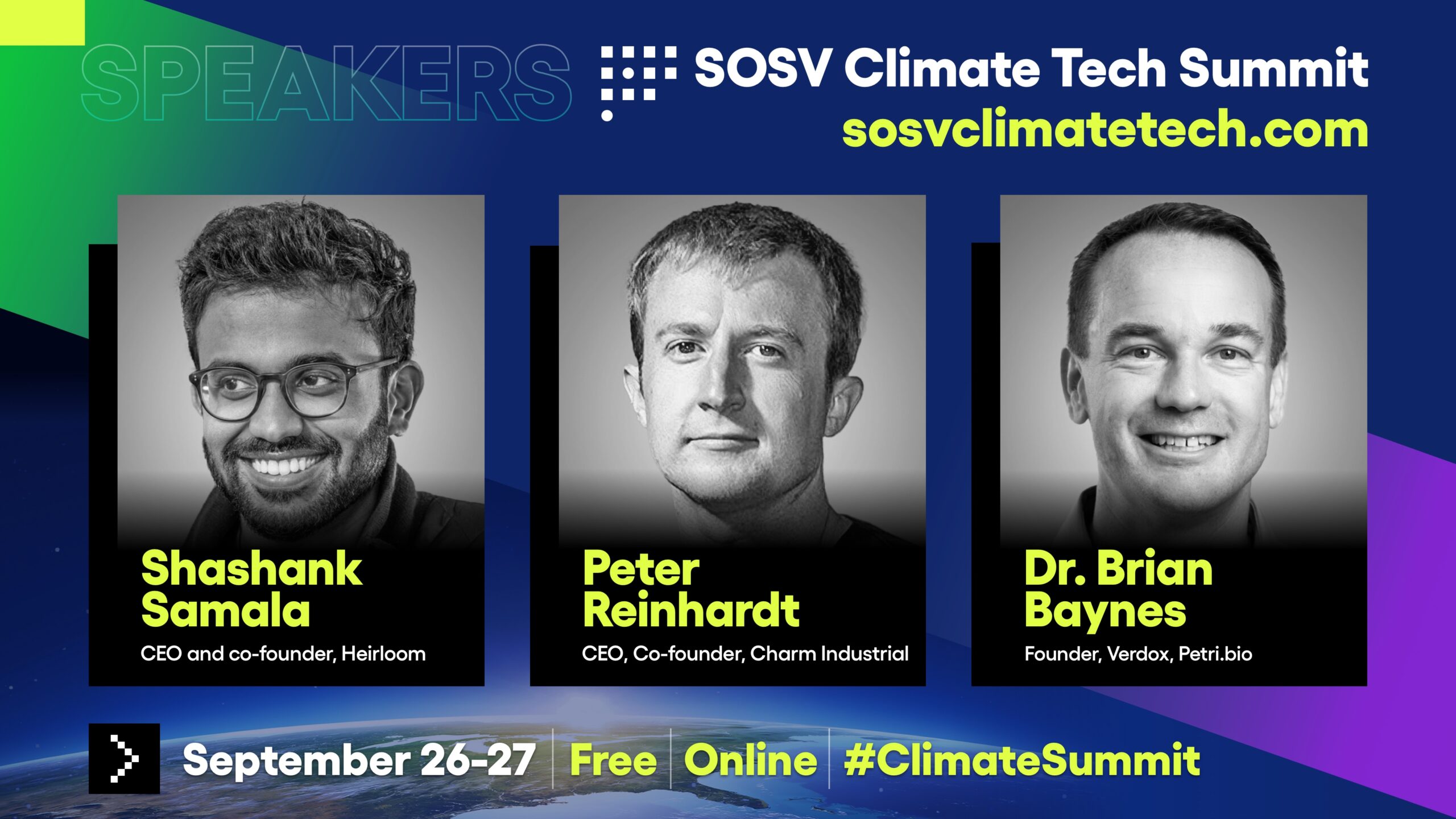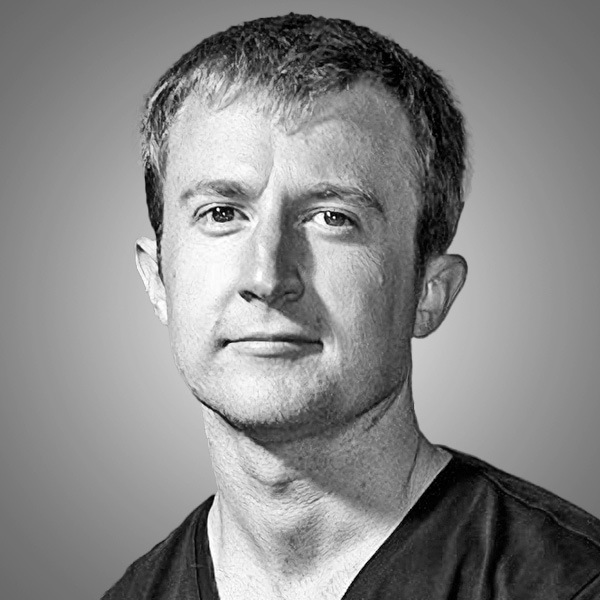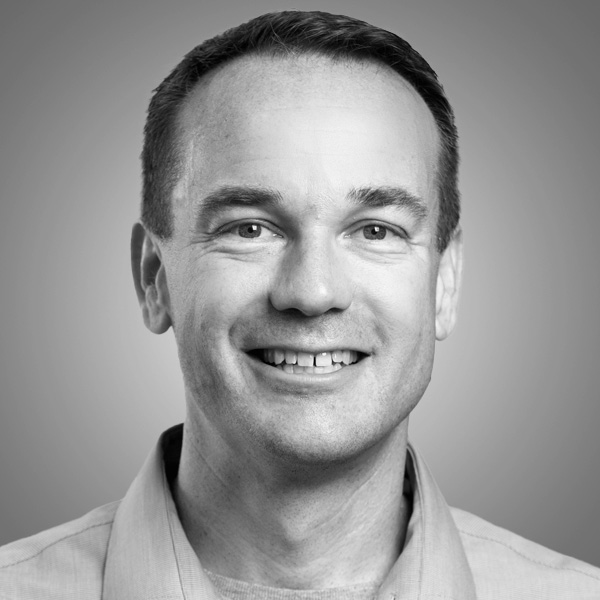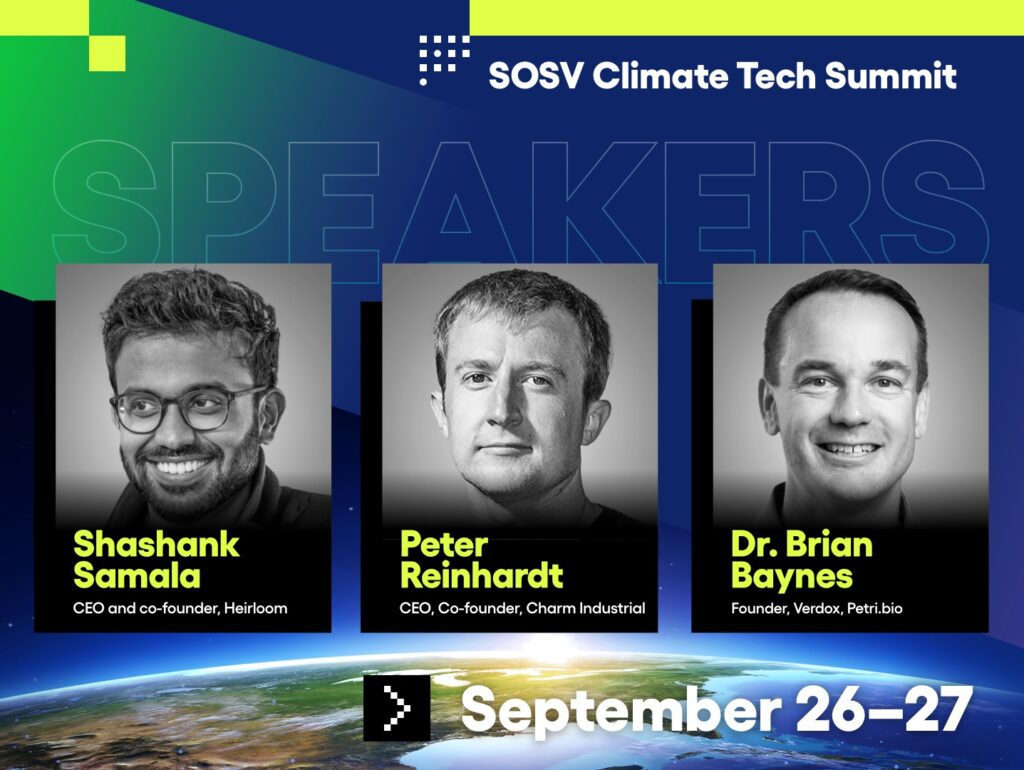
With greenhouse gas emissions still growing, carbon dioxide removal (CDR) is fast becoming an imperative for addressing climate change. The question is, can it be done at scale and at a price the world can afford? We’re diving deep on that topic at the upcoming SOSV Climate Tech Summit (Sept 26-27 / free & virtual).
Researchers at Oxford estimate that the world removes 2 billion metric tons of CO2 per year through methods such as reforestation, biochar, mineralization, and direct air capture (DAC). For perspective, that’s about 5% of the 36.8 gigatons we emitted in 2022. In other words, we have a long way to go. So far, carbon removal ventures have struggled with high costs, uncertain economic markets, and debates about which methods genuinely reduce atmospheric CO2.
Promisingly, tax credits in the Inflation Reduction Act (IRA, aka “the climate bill”) are making carbon removal more attractive in the U.S. by providing a guaranteed baseline price and line-of-sight for future financing. The IRA raised the tax credit value to $180 per ton of CO2 captured and stored via direct air capture (DAC). Meanwhile, efforts like Frontier, an advance commitment by big tech companies to buy $1 billion worth of carbon removal between 2022 and 2030, are creating a stronger market.
This year at the SOSV Climate Tech Summit (Sept 26-27 / free & virtual), we hosted a panel of three startup founders working to scale carbon removal in three ways: limestone, biomass conversion, and electrochemical systems.
Shashank Samala is CEO and co-founder of Heirloom Carbon Technologies, which is heating up limestone in electric kilns to remove 1 gigaton of CO2 by 2035—eventually, at $50 per ton. That bold target has attracted top-tier investors. Last year, Brisbane, Calif.-based Heirloom raised a $53M Series A co-led by Carbon Direct Capital Management, Ahren Innovation Capital, and Breakthrough Energy Ventures. This year, Heirloom permanently stored direct-air-captured CO2 in concrete for the first time and partnered with Climeworks (featured at the 2022 Summit), applied science nonprofit Battelle, and others in a proposal to the U.S. Department of Energy to create a CCUS hub in Louisiana, which was selected in August. It also announced in September a purchase agreement by Microsoft of 315,000 metric tons of carbon dioxide over 10 years, a commitment of at least $200 million based on market prices. The deal will help Microsoft neutralize its carbon emissions and is one of the largest ever purchases of carbon-removal credits.
From Charm Industrial, CEO Peter Reinhardt shared how his team converts biomass into bio-oil and injects it back underground for permanent storage. Makes sense given that’s where our surplus CO2 was stored before we pumped and burned it. In June 2023, San Francisco-based Charm raised a $100M Series B led by General Catalyst with Lowercarbon Capital, Exor, Kinnevik, and others participating. The round followed a landmark $53M deal with Frontier to remove 112,000 metric tons of CO2 by 2030 and paves the way for scaling the technology.
Brian Baynes, co-founder and CEO of Verdox, discussed how his team could reverse climate change with renewable-powered electricity. An MIT spinoff based in Woburn, Mass., Verdox develops an electrochemical technology that runs a current through electrode stacks to capture—and eventually release—CO2 without using vast amounts of energy. Verdox can do DAC or capture CO2 from industrial sources, like Norsk Hydro’s aluminum smelters. To date, Verdox has raised $100M in funding from Breakthrough Energy Ventures, Prelude Ventures, Lowercarbon Capital, and others.
Candice Ammori, Founder of Climate Vine, moderated the discussion.
Can Heirloom, Charm, and Verdox make the carbon removal math add up?
Find out by watching the full session below—and tune into the rest of the sessions here.
The Speakers

Shashank Samala
Shashank Samala is CEO and co-founder at Heirloom, a company with a goal of removing 1 billion tons of carbon dioxide from the atmosphere by 2035 to help mitigate climate change. He grew up in southeast India where he saw first-hand impacts of climate change on some of the world’s most vulnerable people. Shashank graduated from Cornell and was previously Entrepreneur in Residence at Carbon180, a leading climate policy NGO working solely on atmospheric carbon removal.

Peter Reinhardt
Peter Reinhardt is CEO & Co-founder at Charm Industrial, where they are developing a novel carbon removal pathway & fossil-free ironmaking. Prior to Charm, Peter was CEO and co-founder at Segment, a SaaS customer data platform which grew to 600 people before it was acquired by Twilio in 2020 for $3.2B. He previously studied aerospace engineering at MIT.

Dr. Brian Baynes
Dr. Brian Baynes is a serial entrepreneur and investor. He is a Founder of Verdox, Petri.bio (Boston-based venture accelerator at the intersection of biology and engineering), Midori Health (novel fiber feed additives for animal nutrition and health, sold to Royal DSM (AMS:DSM), Celexion (protein engineering and synthetic biology for biopharma and industrial applications; sold to Agenus (NASDAQ:AGEN), and Codon Devices (applied synthetic biology; sold to Gen9/Ginkgo Bioworks (NYSE:DNA). Brian holds a PhD in Chemical Engineering from MIT.

Candice Ammori
Candice Ammori is the founder and CEO of Climate Vine. Before that, she was the founding Director of the On Deck Climate Tech Fellowship which brought together 650+ people across the climate ecosystem in multiple cohorts. Fellows raised a combined $350M+ in venture funding, more than two dozen companies emerged, and hundreds of emerging contributors transitioned to the climate innovation space. Candice’s methodology for Climate Vine brings together her 10 years of experience and learnings in collaborative strategy. Candice holds degrees in environmental policy and business and an MS in biostatistics, focused on the ethics of AI, from the University of Michigan. She has lived and worked globally in microfinance, business and tech in places ranging from Cambodia to Singapore and London.

